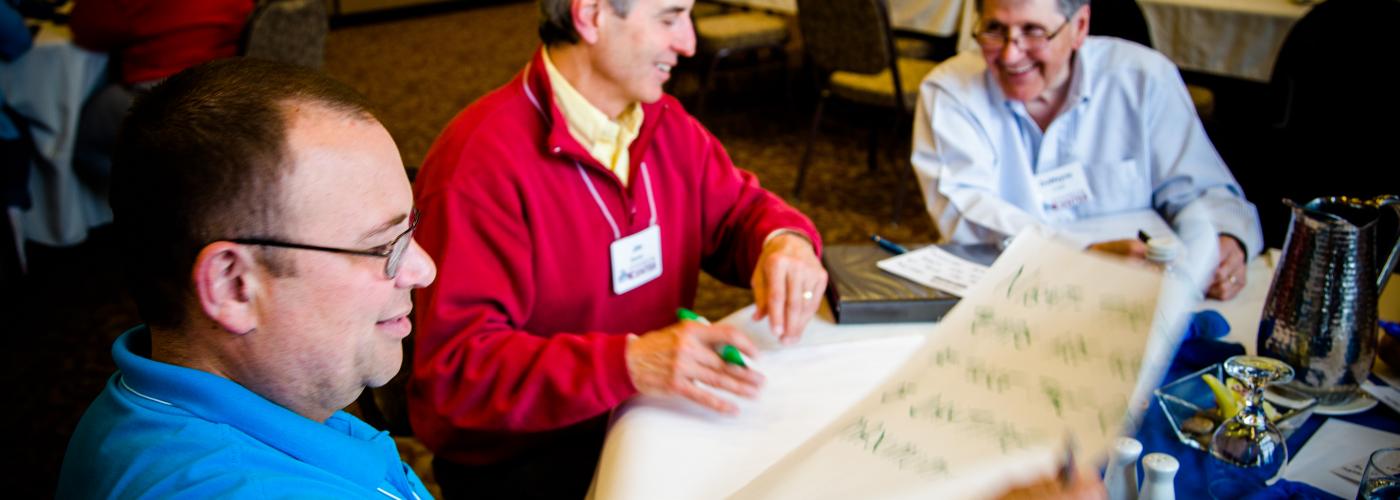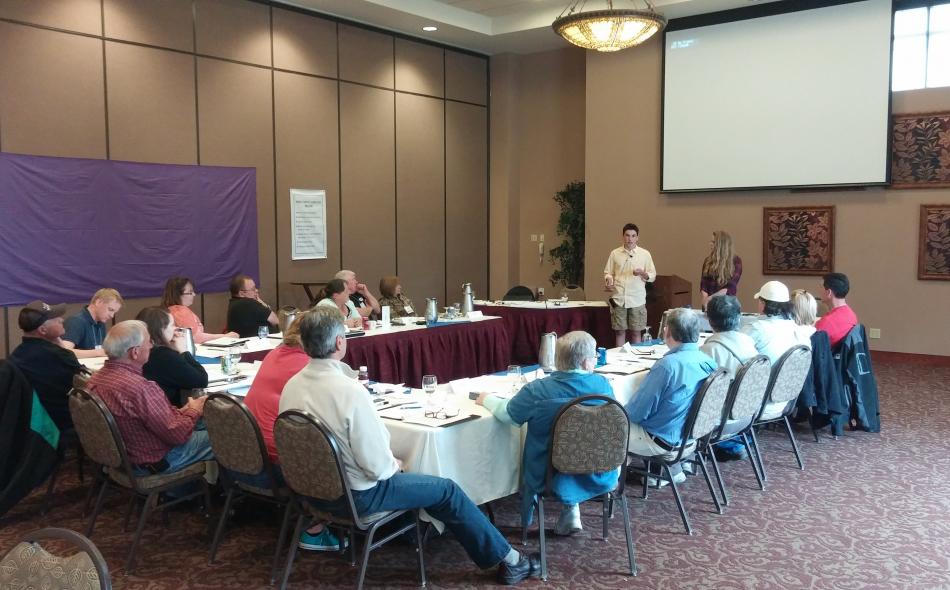In May 2015, Itasca County community members gathered in Grand Rapids for an in-depth three-day deliberative forum to study and discuss changes in the area’s climate and weather. Participants in the Dialogue developed a community-based response outlining concerns, opportunities, and actions to address challenges the community faces. The Itasca Climate Dialogue invited a randomly selected but demographically balanced group of 18 individuals from the county. Participants had access to resources and experts to produce their own independent recommendations that responded to Itasca County’s needs, priorities, values, and ambitions.
In conjunction with the 2015 community event, Grand Rapids High School students hosted a panel of 9 local experts in March 2015 to discuss the local impacts of climate change. After the panel, students identified their top climate concerns: impacts on wildlife habitat and migration patterns, new diseases that will impact the forests and local residents, and water quality in local lakes and rivers. Two students attended the community Dialogue to share their experiences.
The second community event took place on May 18 and 19, 2018. Building upon the first event's recommendations, this event honed in on Itasca County's energy future. This two-day Itasca County Energy Dialogue engaged a group of 18 community members selected to represent the demographics of Itasca County. 13 participants were randomly selected from a pool of Itasca County residents to reflect the demographic makeup of the county in terms of age, gender, education, political affiliation, and more. 5 participants were chosen to represent public officials and others involved in Itasca County energy issues. Over the two days, participants studied the energy system in detail, assessed criteria for evaluating the energy system, identified challenges and opportunities related to the energy system in Itasca County, and created action plans to help address challenges and realize opportunities.
Our continued engagement in Itasca County will focus on partnerships built throughout this process, and furthering community-identified needs.


